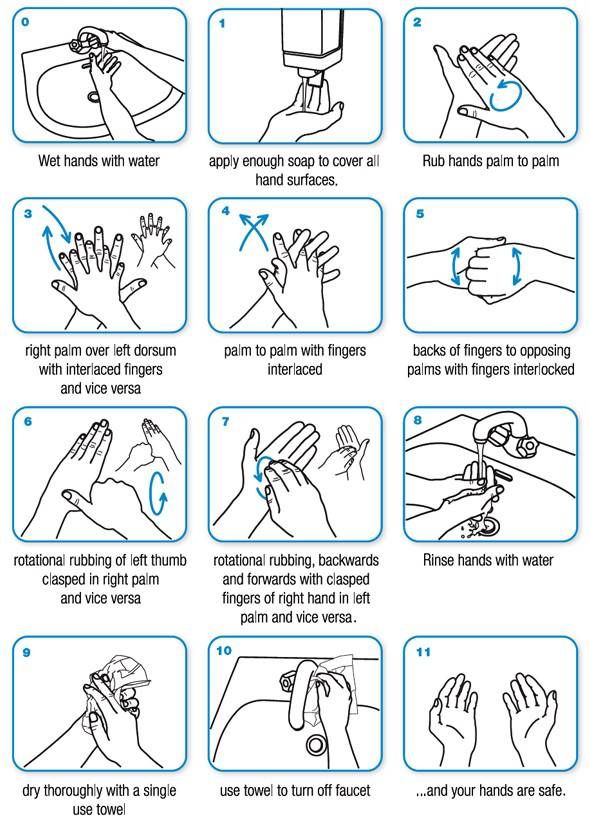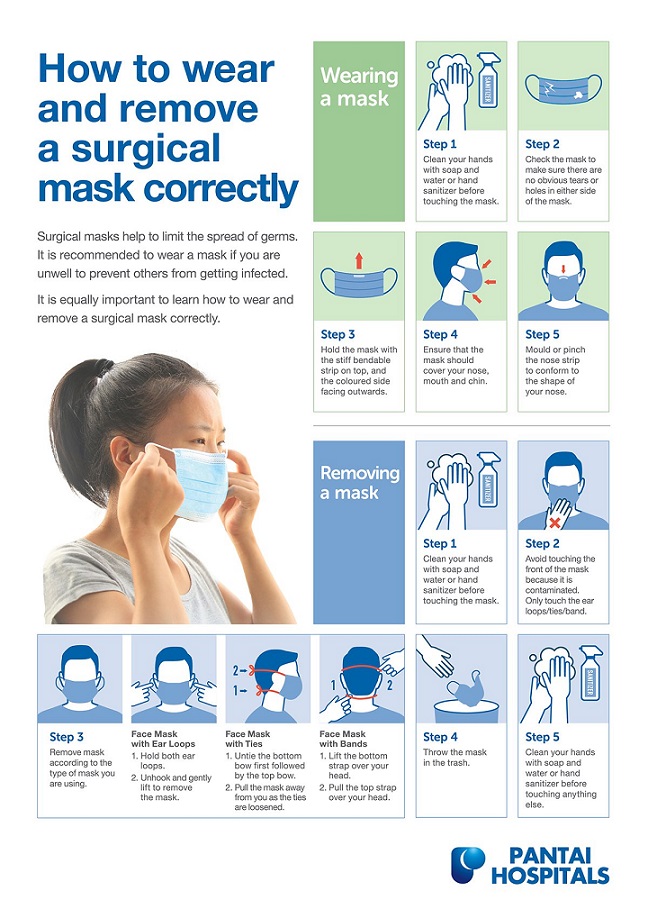Prevention Guidelines
As mentioned in other sections of this website, COVID-19 is a very contagious virus that attacks the respiratory system of its infected host. Luckily, there are many easy and effective steps we can take to prevent its spread and keep damage to a minimum.
Practising Good Personal Hygiene
Some of the most effective ways to prevent this virus from attacking you or your loved ones are simply practicing good personal hygiene.
- Make sure to wash your hands regularly with antibacterial soap for at least 20 seconds. Rub your palms, back of the hand, the area between your fingers and thumb, and under your nails.
- Do not touch your face, nose and mouth. The virus enters your body from these openings.
- Cough and sneeze into your elbow or a tissue, NOT your hands or clothes.
- Do not share food, kitchen utensils or plates with anyone who appears to be sick or who has just returned from a journey.
- No expressive vocabulary by 16 months
- No meaningful two-word phrases (not including imitating or repeating) by 24 months
- Any loss of speech, babbling or social skills at any age
- Does not respond to name by 12 months


Keeping Your House Safe
- Use disinfectant wipes and sprays to wipe down counters and surfaces frequently. The virus can live on hard surfaces for anywhere between a few hours to a few days. Wipe down your phone and laptop as well, or any other electronics you touch frequently.
- Fruits and vegetables can be disinfected by using food grade hydrogen peroxide or white vinegar. Soak them in a mix of the above and let dry before storing.
- Though it is always better to eat at home, if you order food from a restaurant or have any other kind of delivery packages, make sure that there is no contact between you and the delivery person. Wash your hands for 20 seconds after handling money and disinfect the box before opening.
- Do not let anybody who seems ill enter your home, and make sure that elderly or weak/ill family members stay at home as much as possible.
- It is a good idea to stock up on first aid materials so that you can treat all minor ailments at home and reduce the risk of infection by going to a hospital. Stock up on prescription medications as well.
- No meaningful two-word phrases (not including imitating or repeating) by 24 months
- Any loss of speech, babbling or social skills at any age
- Does not respond to name by 12 months
Public Places
You have probably heard about social distancing on the news as a very important way to keep the virus from spreading. Social distancing is very important to practice as much as humanly possible, however there is not a total ban on going outside. You will need to leave the house for groceries or to seek medical care. Make sure that if you do go outside, it is for a valid/urgent reason. Stay at least 1 metre (3 feet) away from others, avoid shaking hands or hugging, greet people from a distance, and wear masks and gloves if they are available to you.
Though the virus does not seem to be transferred through animals, it is still good practice to stay away from animal markets and minimise your consumption of meat.
What if someone gets sick?
If you or someone you know seem to be feeling sick: Isolate that person immediately, and make sure they have separate dishes, linens, and other utilities. If you have a spare room, isolate the person there but if space is short make their own temporary space where nobody else is allowed to go and follow the guidelines given in the “Do I have COVID-19?” section.
